When life throws unexpected challenges our way, having an emergency contact notification can be a game-changer. This simple yet vital communication tool ensures that your loved ones are informed and prepared in times of crisis. Imagine the peace of mind knowing that someone trustworthy can step in to help when you're unable to do so yourself. Ready to discover how to create an effective emergency contact letter?
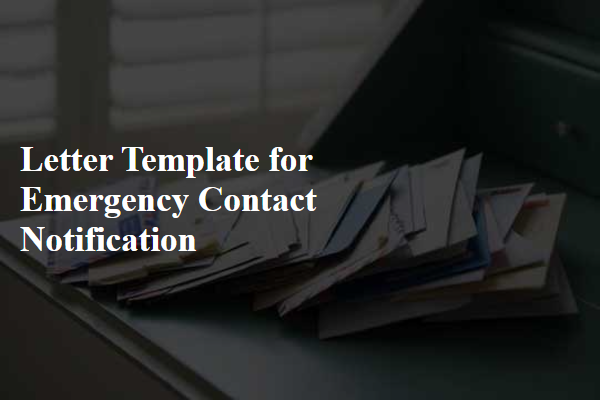
Clearly define the emergency situation
In case of a medical emergency, immediate response is crucial for survival. Emergencies, such as heart attacks or severe allergic reactions, require prompt attention. A heart attack, characterized by chest pain and shortness of breath, demands a call to emergency services (dialing 911 in the United States). Severe allergic reactions, known as anaphylaxis, can arise from insect stings or food allergens, necessitating the usage of an epinephrine auto-injector. Should an accident occur, such as a fall resulting in potential fractures, it is vital to provide clear information regarding the location, nature of the incident, and number of individuals involved to first responders promptly. Always ensure that emergency contact information, including names and phone numbers, is easily accessible for immediate notification.
Provide detailed contact information
In emergency situations, swift communication is essential. The designated emergency contact should provide their full name (e.g., John Smith), relationship to the individual in need of assistance (for example, parent or spouse), and current phone number (including area code, 555-123-4567). A secondary contact number (for backup purposes) should also be included, along with an email address (johnsmith@example.com) for additional communication methods. Furthermore, the physical address (123 Main St, Springfield, IL, 62704) of the emergency contact can be crucial for local authorities. It's important for each detail to be accurately noted to ensure a prompt and efficient response.
State relationship to the person in need
Emergency notifications require clear communication regarding the relationship of the individual to the person in need of assistance. For instance, if a family member is involved, describing the emotional ties and immediacy of the situation matters. The wording might convey urgency, such as "As the mother of John, who has been hospitalized following a car accident on Highway 101, I am seeking immediate contact regarding his condition." Specific details about the nature of the emergency (e.g., medical situation) and the direct implications for the individual receiving the notification should also be emphasized to convey the gravity of the situation.
Include specific instructions or requests
During an emergency situation, immediate contact is crucial for ensuring safety and coordination. Emergency contact notifications must provide clear guidance and necessary actions. List the full name and relationship of the emergency contact, such as spouse, parent, or sibling, followed by their phone number (including area code). Specify any critical medical information relevant to the individual in need of assistance, such as allergies or pre-existing conditions. Clearly outline requests for assistance, including who should be notified (medical personnel, family members) and any specific actions that should be taken (e.g., assist with relocation or facilitate communication). Emphasize the importance of remaining calm and following established emergency protocols to ensure a swift and effective response.
Maintain a professional and concise tone
Emergency contact notifications are essential for ensuring safety and security in various environments. Notification systems often rely on clear channels of communication, such as emails or text messages, to inform designated individuals during critical situations. For instance, schools may implement emergency contact procedures (such as drills and alerts) to quickly reach parents in case of severe weather events or health emergencies. Additionally, corporate environments establish protocols for reaching out to emergency contacts for employees during workplace incidents (like injuries or evacuations), ensuring that designated family members are promptly informed. Such notifications must include vital details like the nature of the emergency, location (such as the office building or school address), and any immediate actions required. All details must be accurate and delivered swiftly to mitigate potential risks and foster effective responses.
Letter Template For Emergency Contact Notification Samples
Letter template of emergency contact information for healthcare providers
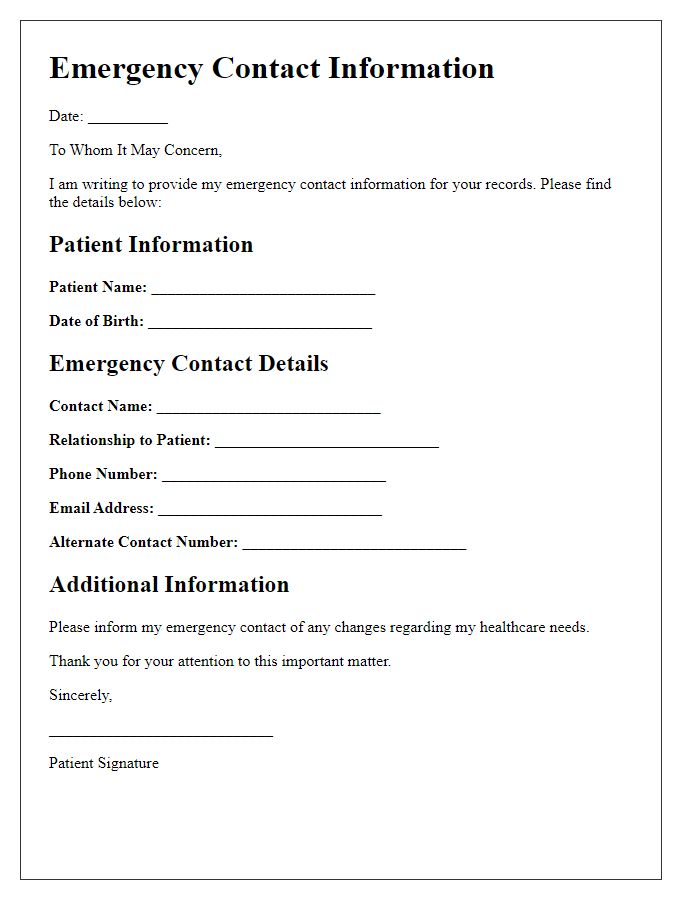
Letter template of emergency contact listing for volunteer organizations
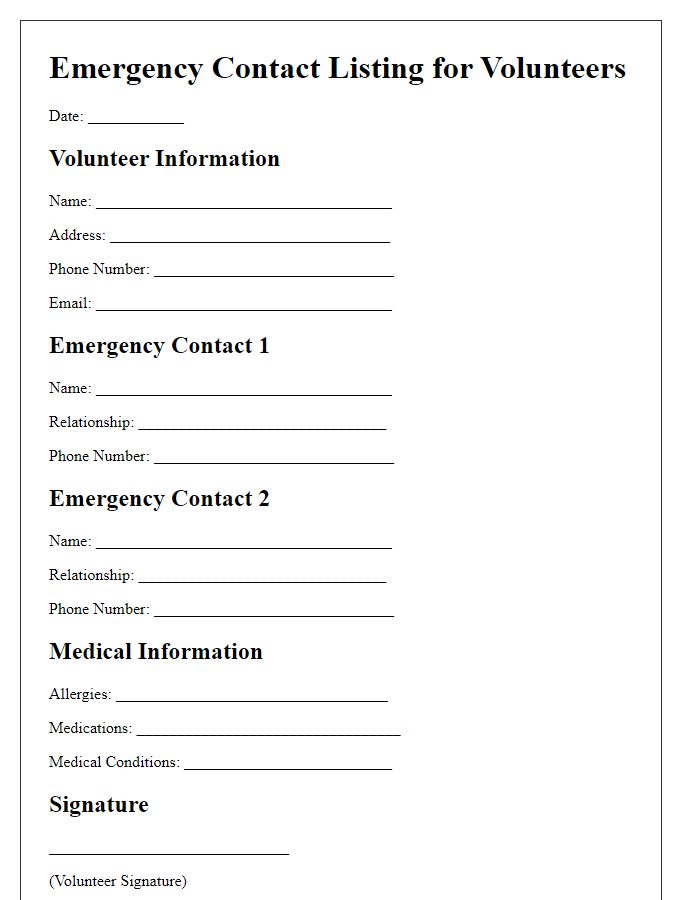

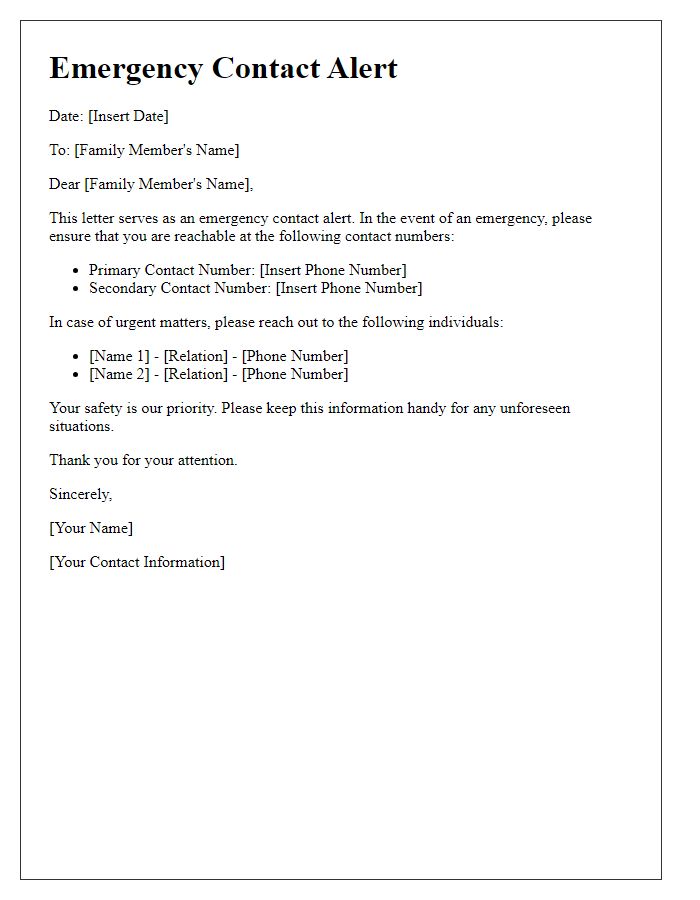
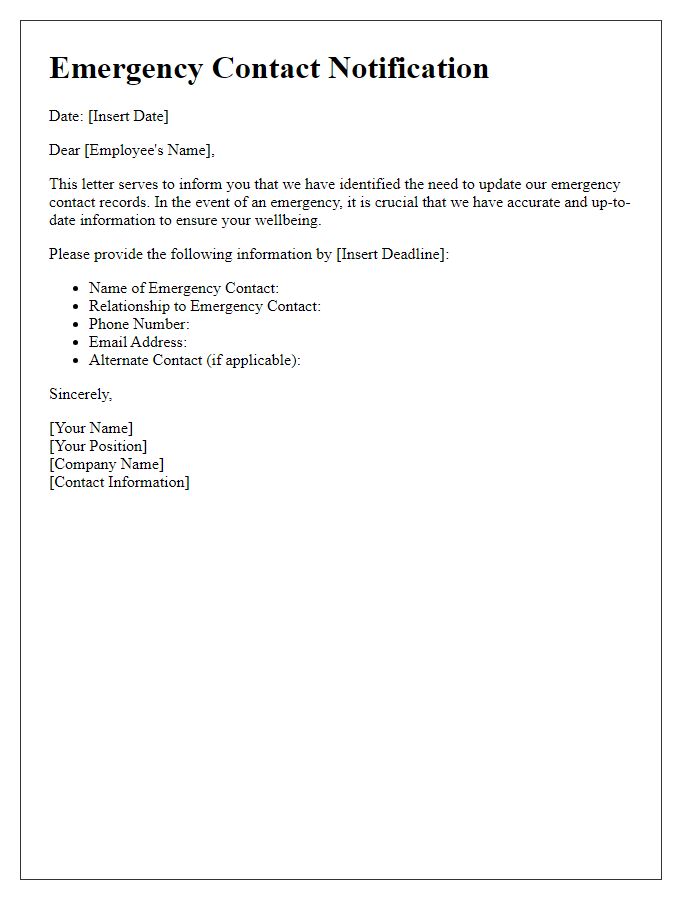
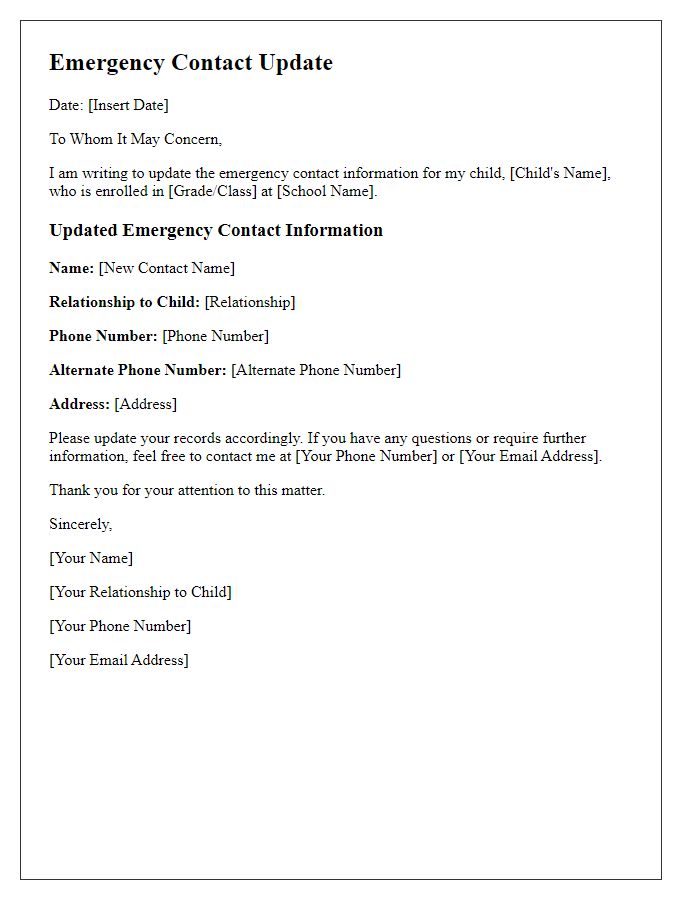
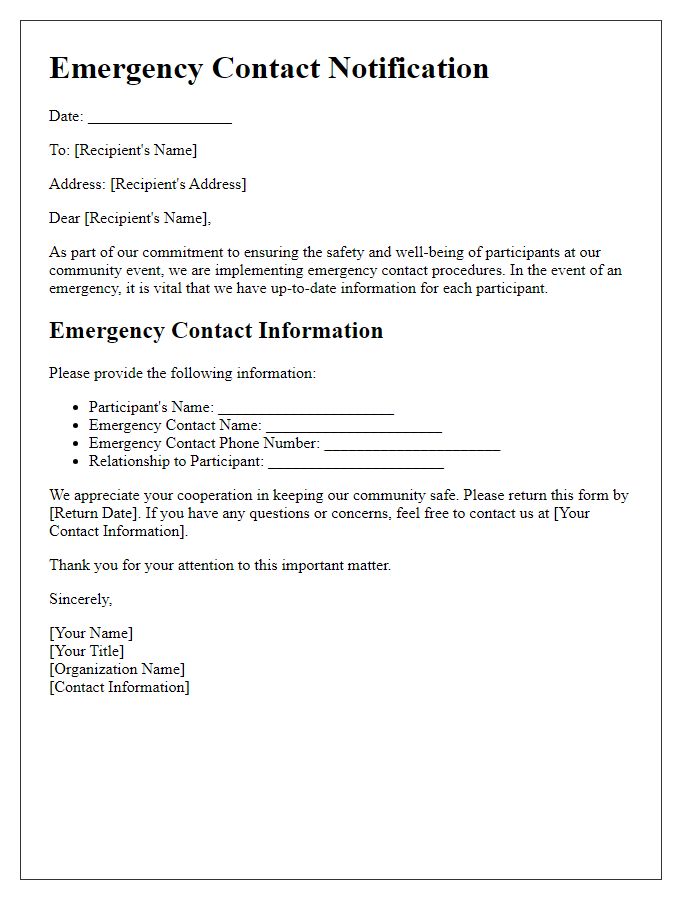
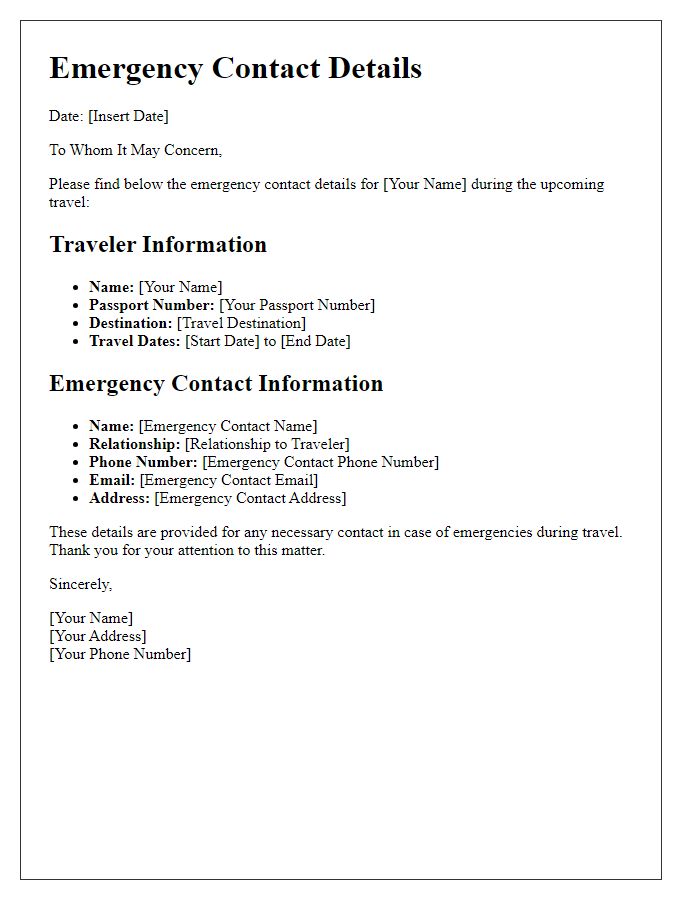
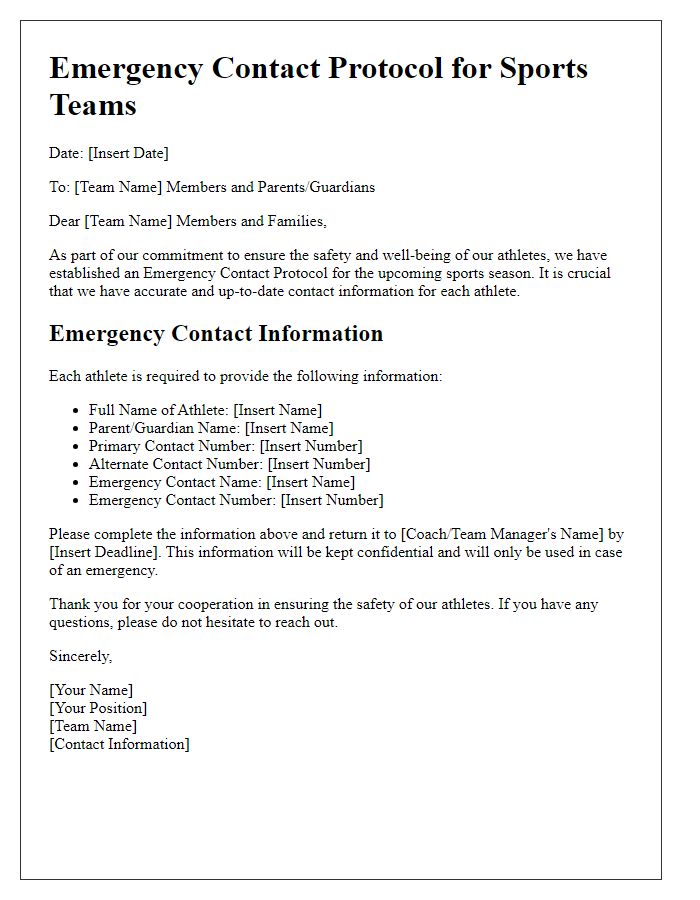
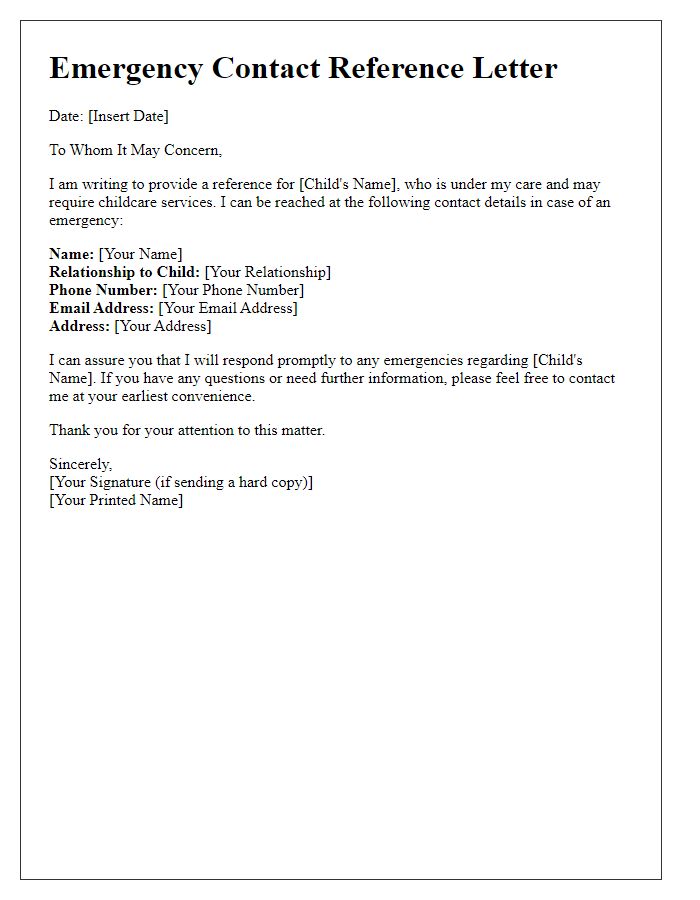
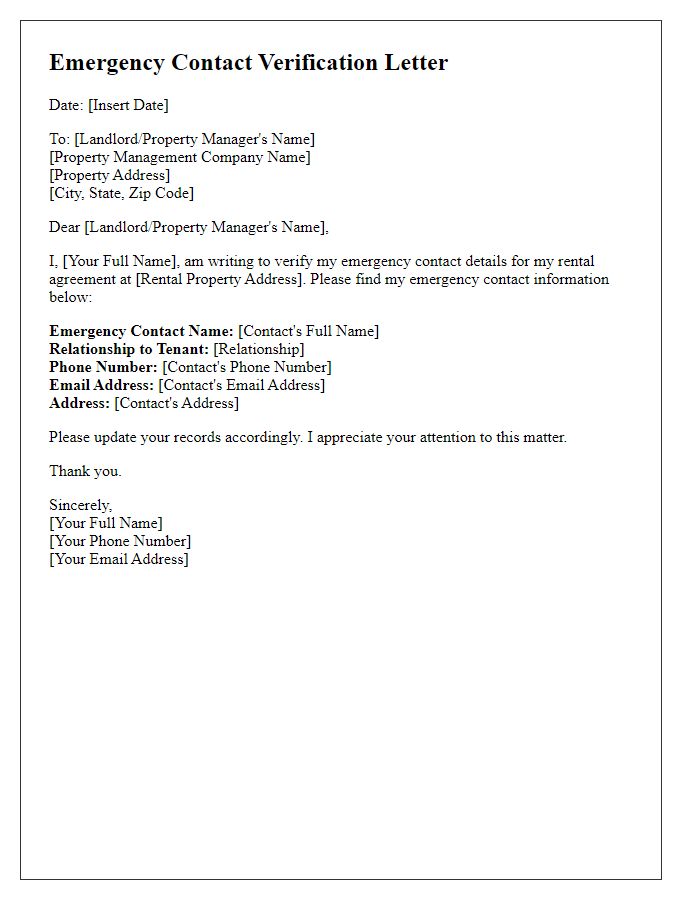

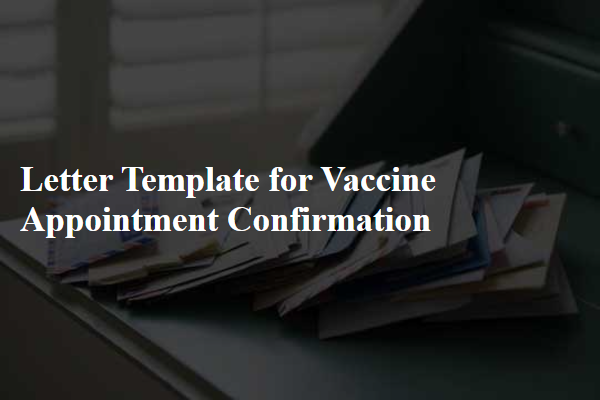
Comments